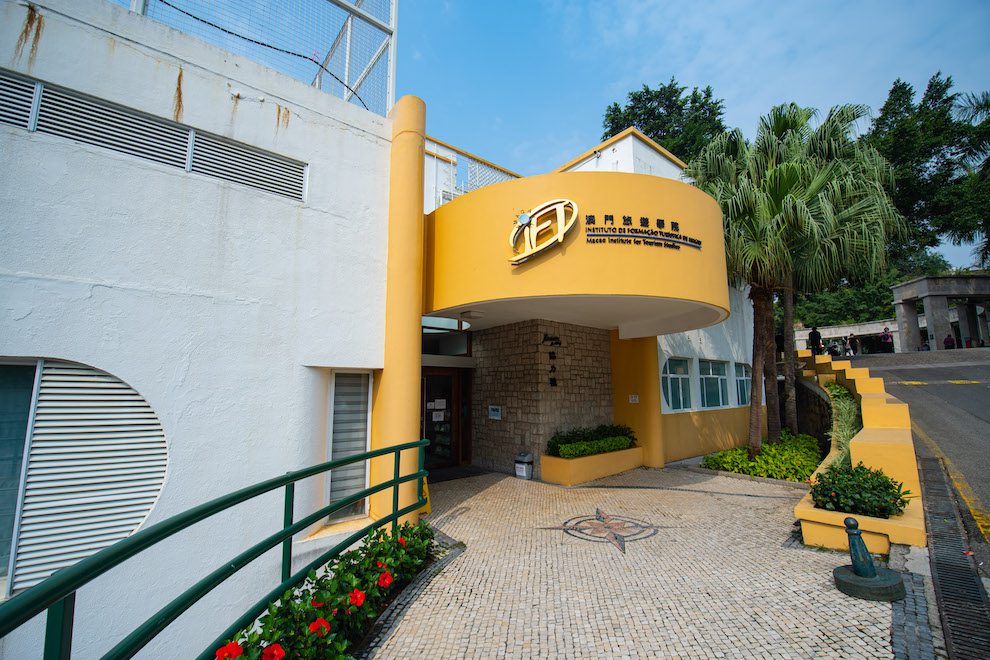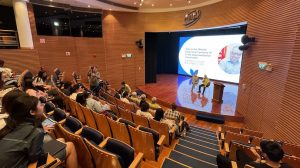IFTM’s Heritage Management Bachelor’s Degree Programme has been updated with new courses, in-depth revision of the content of existing ones, and a wider scope, so that it now also covers cultural management. As a result, the programme has been rebranded as the Cultural and Heritage Management Bachelor’s Degree Programme.
Classes for the 28 students freshly accepted into the programme in the current academic year are already being held under the revamped curriculum.
The Cultural and Heritage Management Bachelor’s Degree focuses, as the title suggests, on the interrelated areas of cultural and heritage management, explains Programme Coordinator Dr. Sharif Shams Imon. The curriculum revision was part of IFTM’s continuous effort to enhance the quality of its academic offering.
According to the Institute, the new curriculum “aims to provide an excellent cultural and heritage management education that develops young adults into professionally sound, and socially and environmentally responsible individuals, suitable for positions in diverse professional fields related to cultural and heritage management”.
In addition to specialised courses on cultural and heritage management and cultural tourism, the programme provides students with knowledge and skills in core management, information technology, research, and foreign languages. It makes use of IFTM’s trademark teaching approach, combining theory with hands-on projects, as well as giving students access to field trips and lectures with industry experts.
To update the curriculum of the programme, a 4-member task force was formed by IFTM in August 2017. The group looked at the curriculum of more than 70 similar existing offerings around the world, consulted local and international heritage and cultural management scholars and professionals, and compiled responses of alumni that had completed the Heritage Management programme.
The revamped programme continues to provide Year 3 students with the opportunity to go on a 6-month internship at any of IFTM’s partners in Macao or further afield. As previously, undergraduates are required to complete a capstone project in their final year of studies, having the option to choose doing an academic thesis.
Dr. Imon says that to enhance the effectiveness of the programme’s curriculum, IFTM reviewed 8 existing courses and added 13 new ones, to “address current and emerging needs”. Some courses that no longer aligned with the new intended outcomes for learning were removed. The overall number of courses and needed credits to complete the degree was reduced, in line with international best practice in higher education.
Improved career prospects
IFTM’s Heritage Management programme was launched in academic year 2005/2006. Its curriculum was revised first in 2010, a revamp that became effective from the 2012/2013 academic year; a second revision took place in 2016, being implemented that year.
“When the programme was first launched, the Historic Centre of Macao had just been listed as a World Heritage site by UNESCO,” Dr. Imon recalls. “There were a lot of discussions on heritage going on, and Macao needed heritage professionals urgently.”
The scholar explains that, as time went by, cultural and creative industries kept growing in economic importance, both locally and globally, becoming increasing intertwined with tourism and heritage. “We understood that we needed to produce professionals that could work in diverse fields related to culture and heritage,” says Dr. Imon. “Even someone working purely in the heritage field needs to have a good understanding of broader issues linked to cultural management.”
The revamped programme was designed to answer that need, widening the prospective career opportunities for fresh graduates. It aims to prepare them for management careers in the fields of heritage, cultural tourism, cultural and creative industries, museums and galleries, and the exhibition industry.
Dr. Imon highlights that the content of the Cultural and Heritage Management programme aligns with Macao’s long-term goals, focused on sustainable development and economic diversification. “Macao’s cultural resources are one of the features that set the city apart from other places,” he says. “If we want to maintain that competitive edge, we need to take care of these resources: so, we need professionals who know how to do that.”
The scholar adds: “Macao is our primary focus, but we want to give our students an international exposure so that they can work anywhere in the world.”









